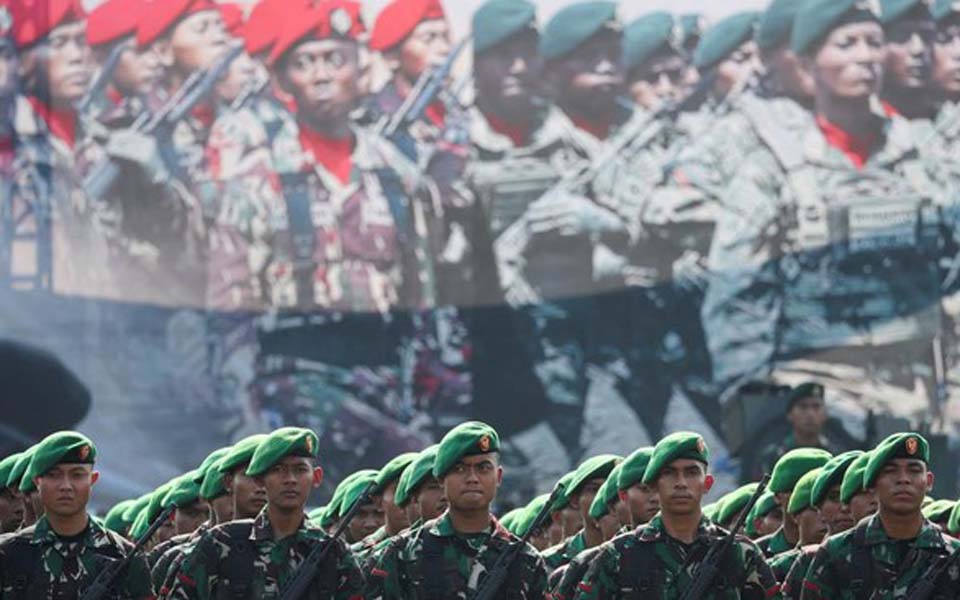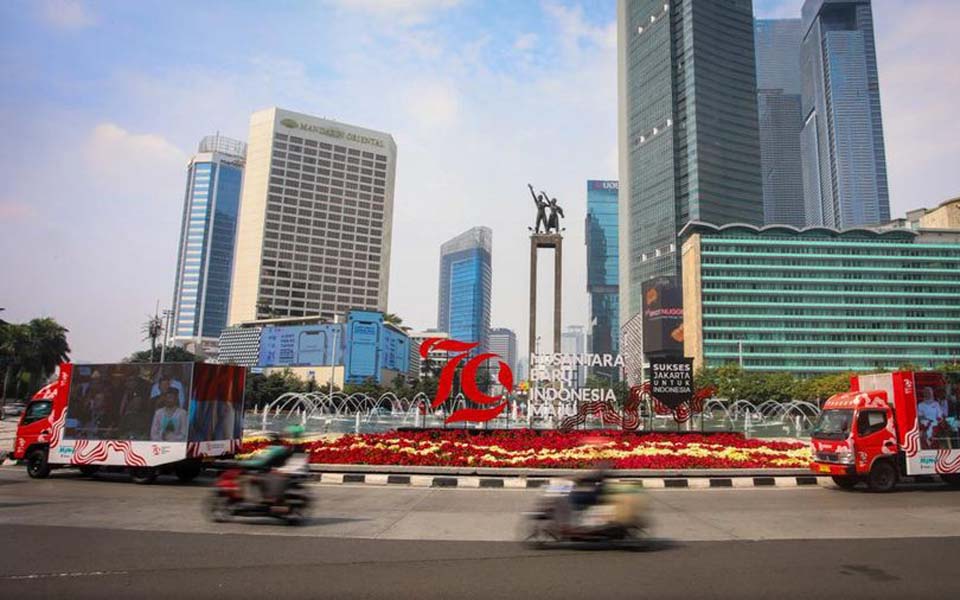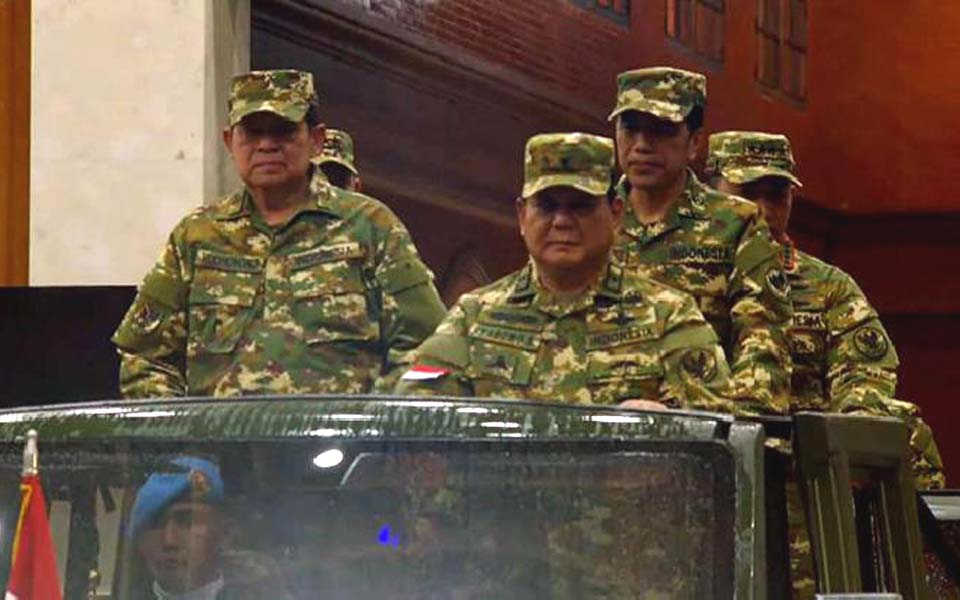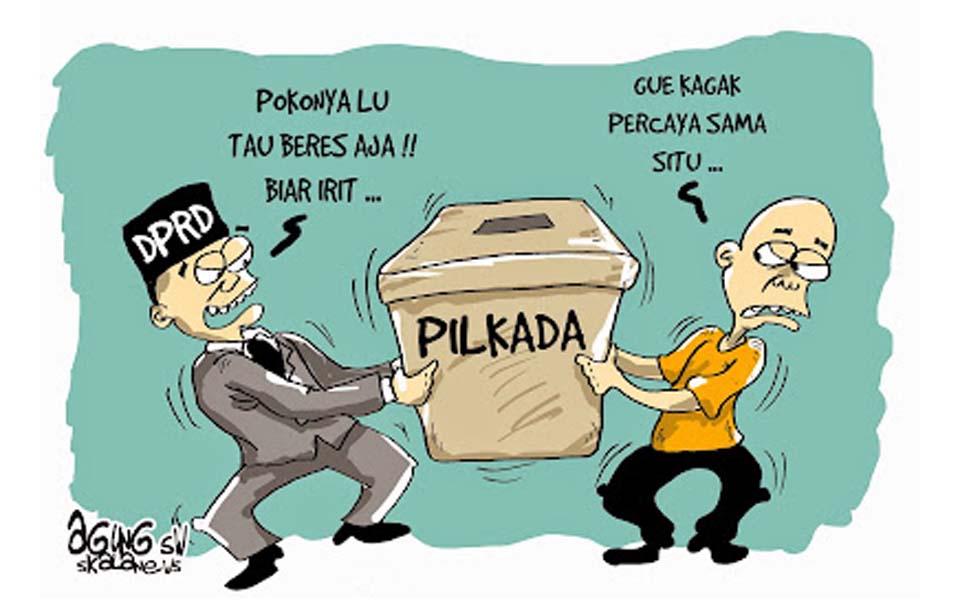Indah Surya Wardhani – The West Java election of regional heads, which looks set to be won by Ahmad Heryawan and Dede Yusuf, indicates that the voting patterns of traditional voters had changed significantly. The hope for the emergence of an alternative leadership is becoming a progressively stronger phenomenon and is more important than loyalty to a particular political party.
It is this phenomena that was recorded in a survey of voter behaviour (exit poll) conducted by Kompas Research & Development (Litbang Kompas) of voters after they had cast their ballot in the West Java gubernatorial elections (Pilkada Jabar) on Sunday April 13. It appears that the political party machines are no longer able to rely on their mass base in the 2004 general elections to guarantee the victory of the regional candidates they support. The personage of regional electoral candidates is more interesting to voters that the party supporting them.
Despite this however, the Prosperity and Justice Party (PKS) and National Mandate Party (PAN) coalition were the most solid in mobilising people to vote for their candidates. As many as 60.6 percent of votes from the mass base of the PKS and PAN coalition did indeed flow to PKS member Ahmad Heryawan and former actor and House of Representatives (DPR) member Dede Yusuf (Hade).
Only 19.8 percent “deserted” and gave their vote to the other candidates, with 11.3 percent voting for former transport minister and retired army general Agum Gumelar and incumbent West Java deputy governor Nu’man Abdul Hakim, and 8.5 percent voting for incumbent West Java governor Danny Setiawan and former West Java military commander retired Major General Iwan Ridwan Sulandjana.
Conversely, although the majority of voters (41.5 percent) from the mass base of the coalition supporting Gumelar and Abdul Hakim – the Indonesian Democratic Party of Struggle (PDI-P), the United Development Party (PPP), the National Awakening Party (PKB), the Star Crescent Party (PBB), the Functional Party of National Concern (PKPB), the Peace and Prosperity Party (PDS) and the Reform Star Party – voted for the Gumelar-Abdul Hakim ticket, 34.4 percent deserted them for other candidates.
Some 29.3 percent of the PDI-P’s mass base voted for other camps. As many as 20.1 percent voted for the Hade ticket and 9.2 percent to the Danny-Iwan ticket. This was similar in the case of the PPP, PKB, PBB, PKPB, PDS and PBR mass base, with an average of around 18 percent of their supporters voting for the Hade camp.
This was also the case with the Golkar and Democrat Party. Only 28.8 percent of these parties’ mass base voted for Sulandjana and Setiawan, which the two parties were supporting. The majority of votes were in fact distributed to the other camps, with 21.3 percent going to the Gumelar-Abdul Hakim ticket and 25.8 percent to the Heryawan-Yusuf ticket. This political dynamic indicates that the political parties are no longer the principle determinant in the victory of a candidate.
The Heryawan-Yusuf ticket, which based on earlier surveys was not as popular as the other two candidates, also had the smallest electoral base of support. From the results of the 2004 general elections in West Java, on paper the pair could only count on 17 percent of the vote. And this was primarily restricted to urban areas.
The PKS – which was the motor behind the coalition – has its largest mass base of support in urban areas, particularly in the cities of Depok, Bekasi and Bandung. In the 2004 general elections, the PKS won in these three cities.
Old constellations
The votes attracted by the Heryawan-Yusuf ticket overthrew the old constellation of political party forces in West Java. Based on the 2004 elections, the Golkar Party was the victor pocketing 27.9 percent of the vote out of 20.7 million registered voters. This was followed by the PDI-P (17.6 percent), the PKS (11.6 percent) and the PPP (10.6 percent).
The weakening loyalties of these parties’ mass base of support was not just in urban areas, but was also apparent in almost all parts of West Java.
In the East Priangan area for example – based on the vote count in the 2004 elections – represented a traditional electoral base for the PDI-P and PPP. Out of 3.35 million registered voters, the two parties pocketed 34 percent of the vote in this area, which covers the regencies of Garut, Tasikmalaya and Ciamis and the cities of Tasikmalaya and Banjar. Moreover on paper, the colation of the seven parties supporting Gumelar and Abdul Hakim had the potential to garner 45 percent of the vote.
From the results of the survey however, not all of the mass base of the coalition of parties driven by PDI-P and PP voted for the Gumelar-Abdul Hakim ticket. As many as 24.2 percent of the votes from supporters of these seven parties went to the Heryawan-Yusuf ticket.
This was also the case for the Golkar Party, which with the exception of Tasikmalaya City, won in the East Priangan area and controlled 28.3 percent of the vote. After entering into a coalition with the Democratic Party, on paper the Sulandjana-Setiawan ticket should have been able to garner 32.6 percent of the vote.
The results of the survey however show that the majority of the Golkar and Democrat Party mass base in East Priangan actually gave their vote to the other camps. Only 29.3 percent of their mass basis voted for Sulandjana and Setiawan while as many as 27.6 percent actually gave their vote to the Gumelar-Abdul Hakim ticket and 15.5 percent to the Heryawan-Yusuf ticket.
The weakness of the parties’ political machine could also be seen in Cirebon, which covers the regencies of Indramayu, Majalengka, Cirebon, Kuningan and Cirebon city. In 2004 these areas represented a loyal base of PDI-P supporters. PDI-P – which in 2004 won 25.6 percent of the vote out of 3.31 million registered voters in these areas – was the victor in Majalengka, Cirebon and Kuningan. Moreover on January 6, 2008, the PDI-P was also the sole party to support the Subardi-Sunarya ticket as candidate mayor and deputy mayor for Cirebon city.
Not surprisingly therefore, the Gumelar-Abdul Hakim ticket was expected to garner as much as 45 percent of the vote. Based on the results of the survey however, not all of the PDI-P’s mass base of supporters in the Cirebon area voted for Gumelar and Abdul Hakim. Some the votes from this coalition (15 percent) actually went to the Heryawan-Yusuf camp. This may also be related to Yusuf’s popularity as a member of the DPR representing Kuningan regency.
The lessening of party loyalties indicates that voters are now more influenced by the individual qualities of candidates. At least this is what was stated by 61.8 percent of respondents who believe that the capabilities of a candidate regional head are the main consideration in voting. Only 20.4 percent said that their vote was primarily determined by the political party they support.
In addition to this, the old political leaders are also seen as being unable to bring about any meaningful reform. The appearance of bureaucratic figures such as Gumelar or incumbents such as Governor Danny Setiawan and Deputy Governor Nu’man Abdul Hakim are no longer a draw card for voters. The dissatisfaction factor can become a boomerang for the previous leadership.
At least this is the picture provided by 57.8 percent of respondents from this exit poll who admitted they were dissatisfied with the incumbent governor and deputy governor of West Java. Only 31 percent of respondents said they were satisfied.
In the midst of this dissatisfaction, the appearance of the Heryawan-Yusuf ticket in the recent West Java gubernatorial elections has attracted people’s interest. The pair was able to project the image of a new leadership that the pubic was hoping for. (Litbang Kompas)
[Translated by James Balowski. The original title of the report was “Voter behaviour – Dreams of a new leader now winning out over loyalties”.]















